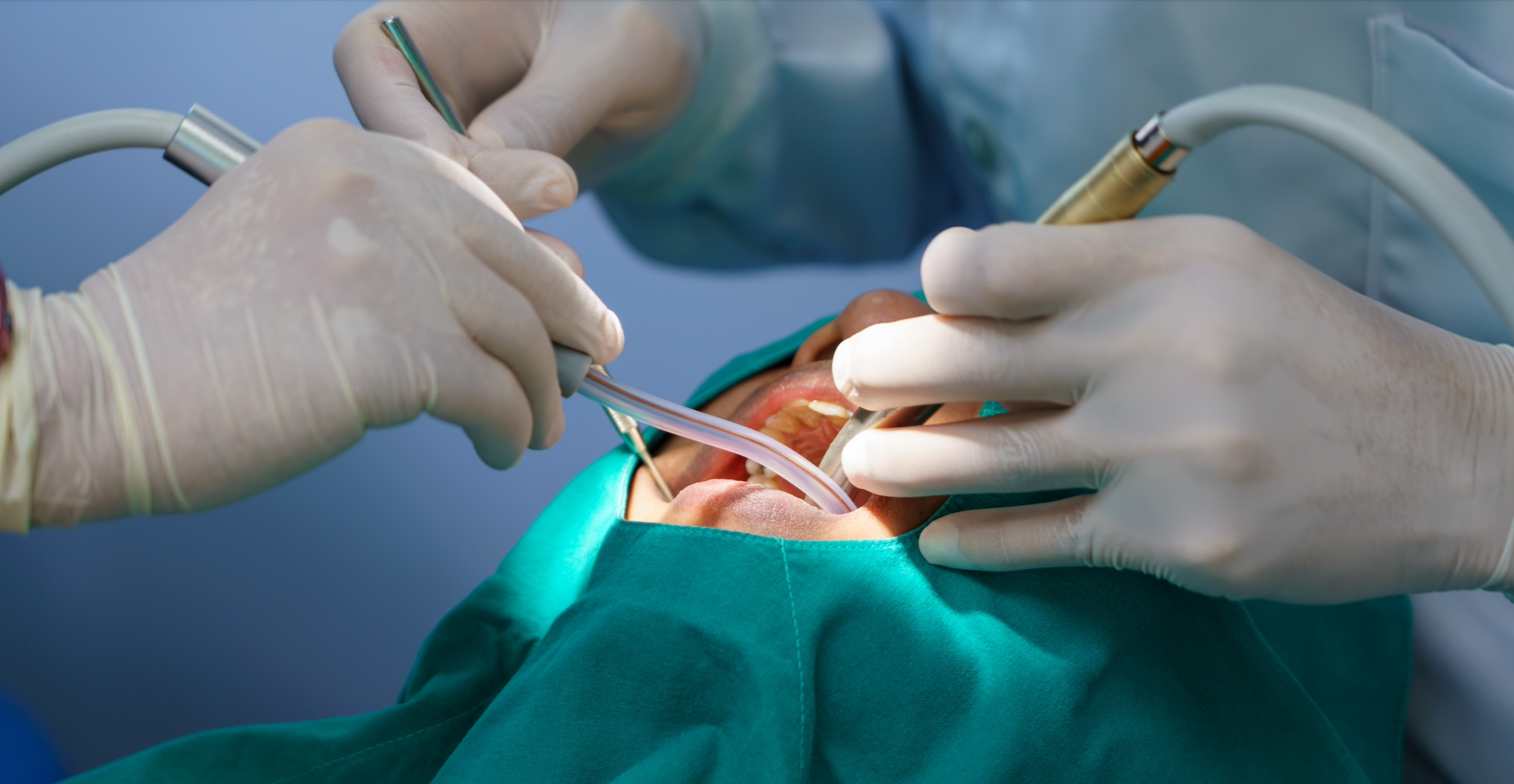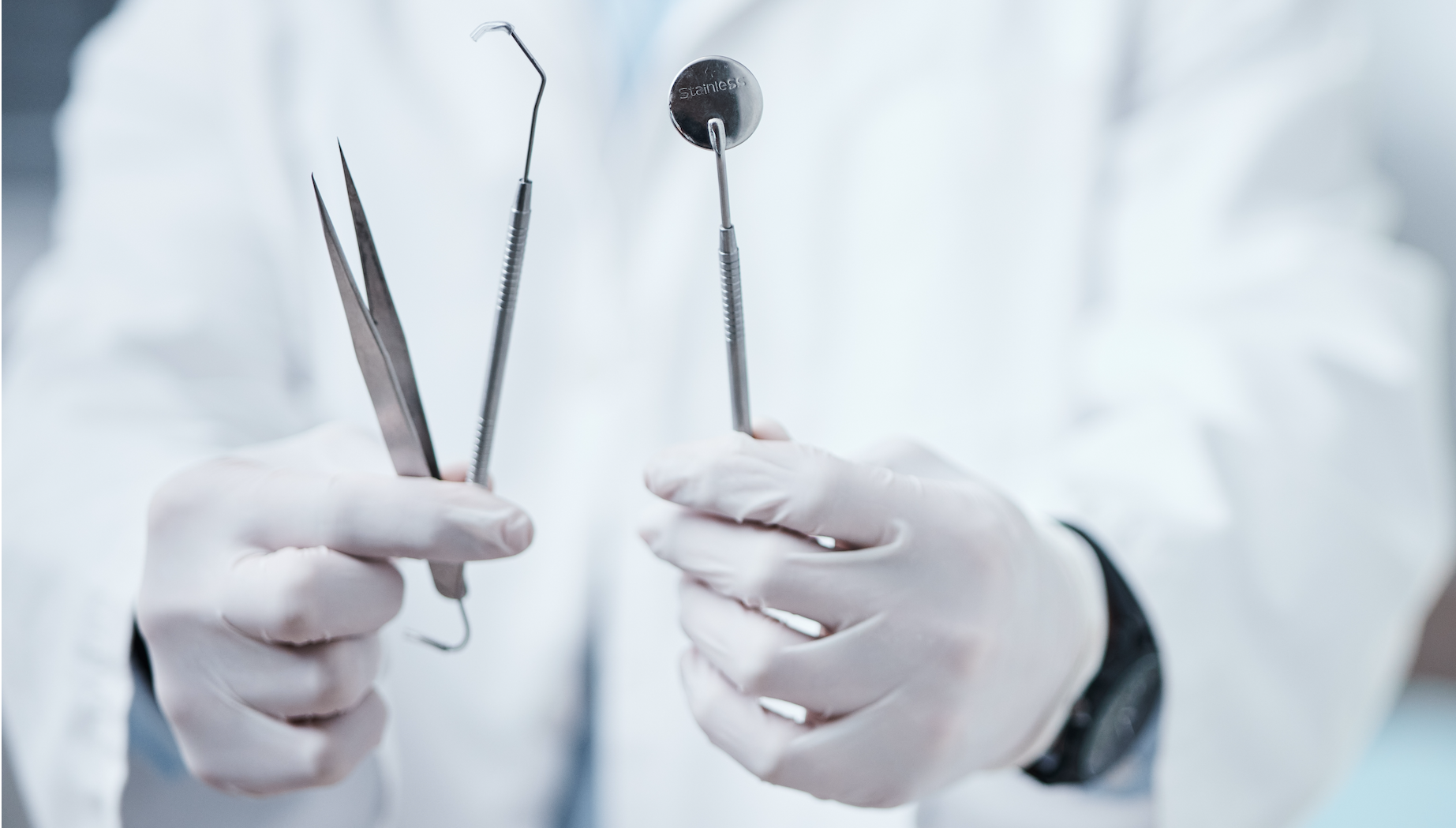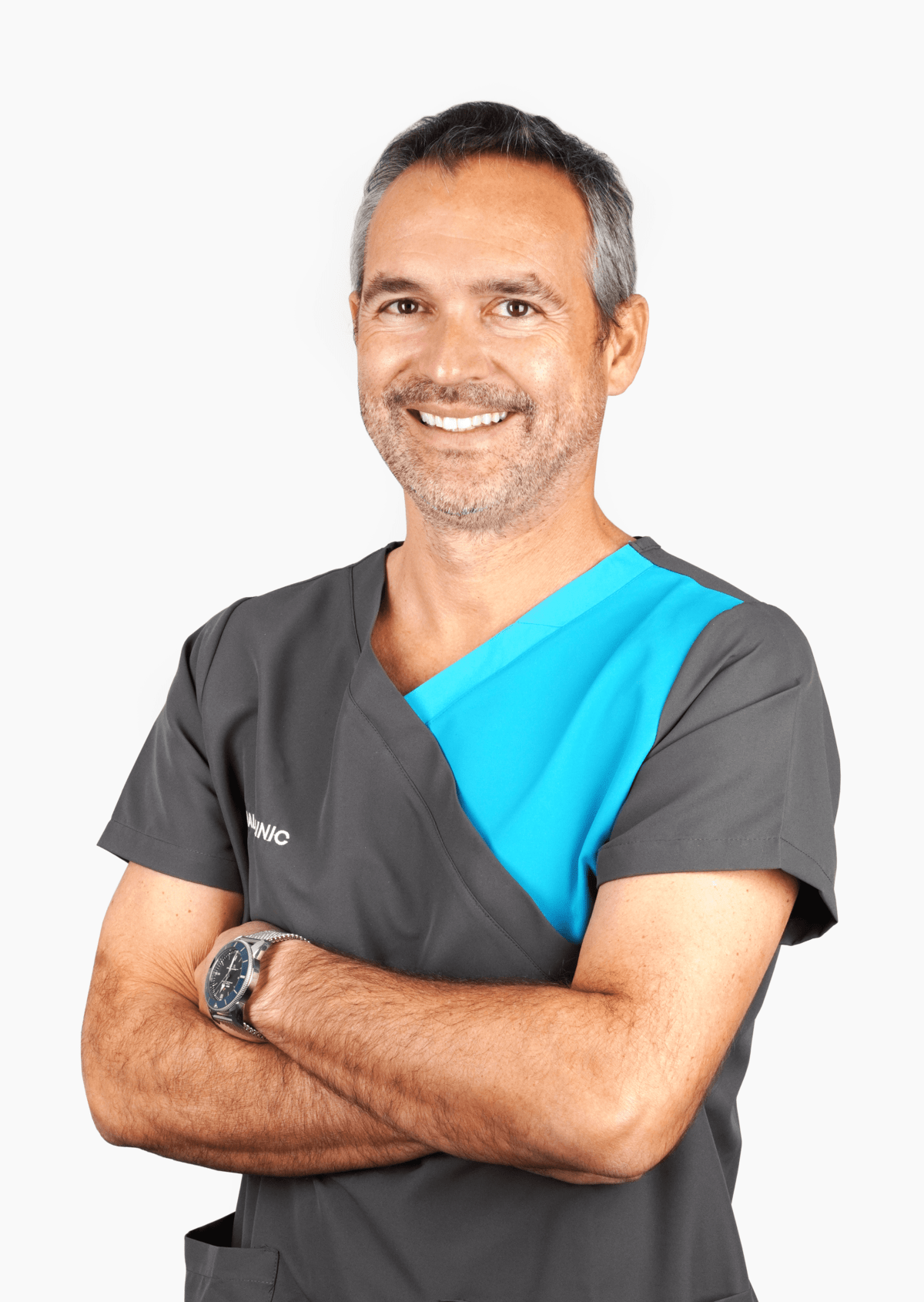Oral Surgery
About the specialty
Oral surgery is an area of dentistry that specializes in the diagnosis and treatment of conditions, injuries and pathologies affecting the oral cavity, jaws and associated structures. This specialty combines surgical techniques with knowledge of dental medicine, to address everything from simple dental problems to more complex cases.

Oral surgery plays an essential role in a patient's overall health, as many conditions treated in this area can have significant impacts on chewing, speech, self-esteem and even general health. In addition, this specialty is fundamental for treating serious infections, removing tumors and complex rehabilitations.
Oral surgeons have specialized training to perform procedures in a clinical or hospital environment, ensuring patient safety and comfort throughout the process.
Benefits of the specialty for Oral Health
Oral surgery offers numerous advantages for patients' oral and general health, including the following:
Early diagnosis of serious pathologies
Oral surgery can identify and treat conditions such as tumors or cysts before they worsen.
Prevention of complications
Surgical interventions prevent infections or simple dental problems from developing into more serious situations, such as abscesses or tooth loss.
Improved quality of life
Procedures such as dental implants or jaw reconstruction restore chewing function, speech and aesthetics, positively impacting the patient's self-esteem and well-being.
Treatment of chronic pain
The specialty treats causes of persistent pain in the oral or jaw region, such as temporomandibular joint dysfunction (TMJ).
Harmonizing oral and systemic health
Many oral conditions can affect the body as a whole. Oral surgery helps to minimize these impacts.
At MALO CLINIC, your oral health is our priority. Come and meet our team and find out how we can help transform your smile.
What pathologies can it treat?
Oral surgery is a comprehensive specialty capable of treating a wide variety of conditions, including:

Tooth extraction
From simple extractions to impacted wisdom teeth or teeth in complex positions.

Extraction of oral cysts and tumors
Removal of benign or malignant masses in the oral cavity and adjacent structures.

Treatment of infections
Abscesses, peri-apical infections or maxillary osteomyelitis.

Facial fracture correction
Treatment of fractures in the jawbone or mandible caused by trauma.

TMJ disorders
Surgeries to correct problems in the temporomandibular joint, such as dislocations or arthritis.

Oral biopsies
For diagnosing suspicious lesions on the oral mucosa or tissues.

Excision of labial or lingual bridle
Indicated in cases of ankyloglossia (“tongue tie”) or limited movement.
Our Clinical Team is here to help you!
Clinical Team
FAQ's
1. When should I see an oral surgeon?
It is advisable to see an oral surgeon in cases of persistent pain in the teeth or jaws, recurrent infections, problematic wisdom teeth, or to assess suspicious lesions in the oral cavity.Orthodontic treatment can begin as soon as alignment or bite problems are identified, most often from the age of 7. However, there is no age that compromises the results of wearing braces, so adults can also benefit from orthodontic treatment.
2. Is oral surgery painful?
The procedures are carried out under local anesthesia or sedation, depending on the complexity, guaranteeing the patient's comfort. After surgery, some discomfort is normal, but this is controlled with appropriate medication.
3. How long does it take to recover after oral surgery?
Recovery time varies depending on the type of procedure and the patient's state of health. In most cases, light activities can be resumed in 24-48 hours, but complete healing can take weeks.
4. What are the risks associated with oral surgery?
As with any surgical procedure, there are risks, such as infection, bleeding or nerve damage. However, the vast majority of oral surgeries are safe and risks are minimized with good planning and patient compliance with post-operative care.
5. Do I need a referral from another doctor to see an oral surgeon?
Not necessarily. Although some cases are referred by general practitioners or other specialty dentists, patients can schedule an appointment directly with an oral surgeon.
6. Can I work the day after oral surgery?
It depends on the procedure and the specifics of your professional activity. For simple extractions, you can return to work in 1-2 days. For more complex surgeries, rest for a few days is recommended.
7. Is oral surgery suitable for the elderly?
Yes. As long as the patient is in good general health, there are no age limitations for most procedures.
8. What to do in case of pain after oral surgery?
Following the surgeon's instructions, taking the prescribed medication and applying ice to the area can help relieve the discomfort. If the pain is very intense or persists for several days, it is important to contact your surgeon.
9. Can oral surgery improve facial aesthetics?
Yes. Some types of intervention and rehabilitation not only restore masticatory function, but also contribute to an improvement in facial harmony.
Agreements and Partnerships
Our Clinical Team is here to help you!










